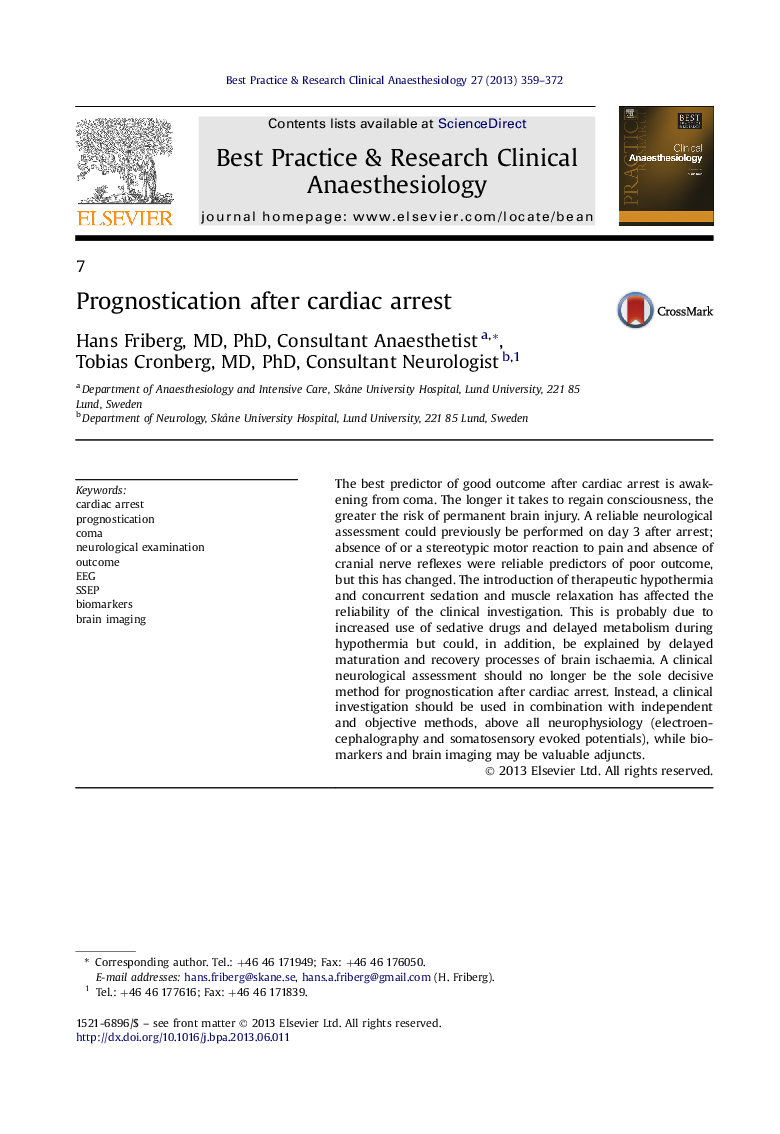| کد مقاله | کد نشریه | سال انتشار | مقاله انگلیسی | نسخه تمام متن |
|---|---|---|---|---|
| 2748523 | 1149196 | 2013 | 14 صفحه PDF | دانلود رایگان |

The best predictor of good outcome after cardiac arrest is awakening from coma. The longer it takes to regain consciousness, the greater the risk of permanent brain injury. A reliable neurological assessment could previously be performed on day 3 after arrest; absence of or a stereotypic motor reaction to pain and absence of cranial nerve reflexes were reliable predictors of poor outcome, but this has changed. The introduction of therapeutic hypothermia and concurrent sedation and muscle relaxation has affected the reliability of the clinical investigation. This is probably due to increased use of sedative drugs and delayed metabolism during hypothermia but could, in addition, be explained by delayed maturation and recovery processes of brain ischaemia. A clinical neurological assessment should no longer be the sole decisive method for prognostication after cardiac arrest. Instead, a clinical investigation should be used in combination with independent and objective methods, above all neurophysiology (electroencephalography and somatosensory evoked potentials), while biomarkers and brain imaging may be valuable adjuncts.
Journal: Best Practice & Research Clinical Anaesthesiology - Volume 27, Issue 3, September 2013, Pages 359–372